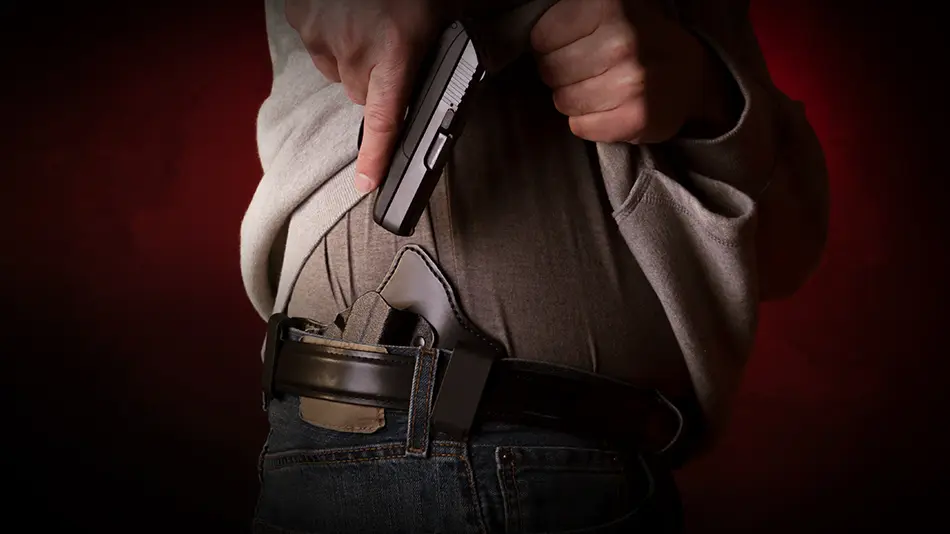
Can a judge sign an order allowing police to seize your guns without you even breaking a single law? In recent years, there has been a nationwide push for “extreme risk protective orders” or “red flag” laws specifically designed to remove firearms from people accused of engaging in conduct or making statements that others may deem “dangerous.” You’ve probably heard about them in the news recently; but what are they? What do you need to know about them, and how could they be used to take away your Second Amendment rights? Let’s look at the history of these laws and how Pennsylvania uniquely falls on this hotly debated area.
The History of Red Flag Laws
Red flag laws entered prominent national discourse in 1999 when Connecticut passed the first one of its kind because of a mass shooting at the Connecticut Lottery headquarters. Lawmakers in Connecticut intended this law to target individuals with specific mental health conditions and prevent them from accessing firearms.
More recently, on February 14, 2018, a 19-year-old former student opened fire at Marjory Stoneman Douglas High School in Parkland, Florida, horrifically killing 17 people and injuring 17 others. There was an immediate national outcry to “do something” to stop what the media has frequently dubbed “gun violence.” When information emerged that the shooter had documented mental health issues, lawmakers across the country began pushing for laws to take away guns from individuals whose behavior raised a “red flag” that they could be a threat to themselves or others.
In theory, the purpose of these laws is to identify an individual who exhibits early warning signs of danger and prevent a criminal act from occurring by preemptively disarming them. However, there’s an obvious irony: with red flag legal proceedings, the person’s firearms are seized, but the individual may be quickly released back into society, free to pursue whatever misdeeds they might choose to do.
Many of the states with red flag laws currently on the books allow for an enforceable court order that prevents the person from owning, purchasing, possessing, or transporting firearms and ammunition for a specified period of time. Several jurisdictions also allow the extension of these orders if the affected individual is still “deemed a threat.”
For example, under California’s red flag law (called a “gun violence restraining order”), a person could be prohibited from owning, purchasing, possessing, or transporting firearms and ammunition initially for between one and five years, with the potential for the order to be renewed and extended indefinitely. California Penal Code §§ 18170-18197 lays out the process by which any qualifying person may ask to extend the red flag order within three months of its expiration. The order will be extended if the court finds that the person still poses a significant danger of causing personal injury to themselves or another by controlling, owning, purchasing, possessing, or receiving a firearm, ammunition, or magazine, and all other conditions for renewal are satisfied.
A Californian subject to a red flag order may petition the court only once per year and ask for it to be lifted; which could entail another costly and time-consuming legal proceeding.
As of the publish date of this article, 19 states and the District of Columbia have enacted versions of red flag laws. How do things stand for Pennsylvania?
Red Flag Laws in Pennsylvania
There are currently no red flag laws on the books in Pennsylvania. Proposals for red flag laws have originated with support from both sides of the aisle. Although none have passed to date, red flag laws have been proposed multiple times in past legislative sessions, and another proposed bill that would bring red flag laws to Pennsylvania was recently introduced.
In January of 2021, Pennsylvania State Senator Wayne D. Fontana (Democrat, Allegheny County) introduced SB 134 providing for “Extreme Risk Protection Orders.”
Under Fontana’s proposed bill, a judge could order someone’s firearms removed from their possession based on an allegation from a law enforcement officer, family member, or household member that the person “poses a significant danger of causing personal injury to self or others by having in [his] custody or control, purchasing, possessing, or receiving a firearm.” The order requiring this prohibition on firearms possession could initially occur without the person subject to the order having an opportunity to contest the allegations. In the event that the court issues this order, the court is required to schedule a hearing within 14 days. After a full hearing, where both sides have an opportunity to be heard, a judge will decide whether to issue an extreme risk protection order that is effective for a period of one year. To do this, the judge would have to find by a “preponderance of the evidence” (meaning, “it is more likely than not”) that the respondent poses “a significant danger of causing injury to self or others by having in the respondent’s custody or control, purchasing, possessing, or receiving a firearm.” If someone owns firearms, has access to firearms, or even intends to possess firearms, that could be used against them under this proposed law even if their possession of the firearms were perfectly legal!
This bill is not the law as of now, and was most recently referred to the judiciary committee on January 27, 2021.
As recently as 2019, Republican state representative Todd Stephens (Montgomery County) proposed an “extreme risk protective order” or “red flag” law. The bill, HB 1075, garnered support from many Democrats throughout the state. It contained many of the same (or similar) provisions that are proposed in SB 134! This bill did not become the law because it ultimately stalled in the house judiciary committee.
Potential Future Legislation in Pennsylvania
Pennsylvania could have red flag laws very soon if SB 134 (Extreme Risk Protection Orders) is passed and signed into law. Even if SB 134 does not pass, it is likely that red flag legislation will continue to be proposed again at both the state and federal levels. Gun owners should remain vigilant with these proposals and wary of how such laws may affect their rights.
If you have questions about red flag laws or any other gun-related legislation, call U.S. LawShield and ask to speak to your Independent Program Attorney.
The information provided in this publication is intended to provide general information to individuals and is not legal advice. The information included in this publication may not be quoted or referred to in any other publication without the prior written consent of U.S. LawShield, to be given or withheld at our discretion. The information is not a substitute for, and does not replace the advice or representation of a licensed attorney. We strive to ensure the information included in this publication is accurate and current, however, no claim is made to the accuracy of the information and we are not responsible for any consequences that may result from the use of information in this publication. The use of this publication does not create an attorney-client relationship between U.S. LawShield, any independent program attorney, and any individual.





Its all about to change republicans and democrats have reached a deal and i fear its gonna become federal these politicians seem to chip snd chip snd chip away at the 2a